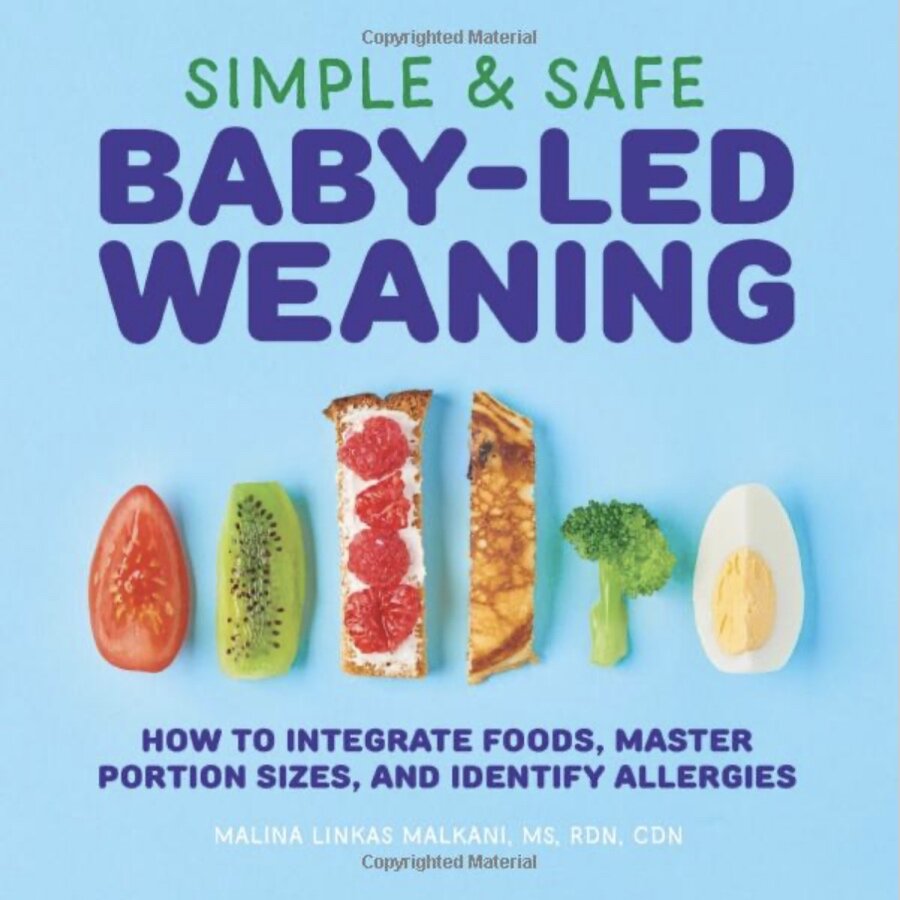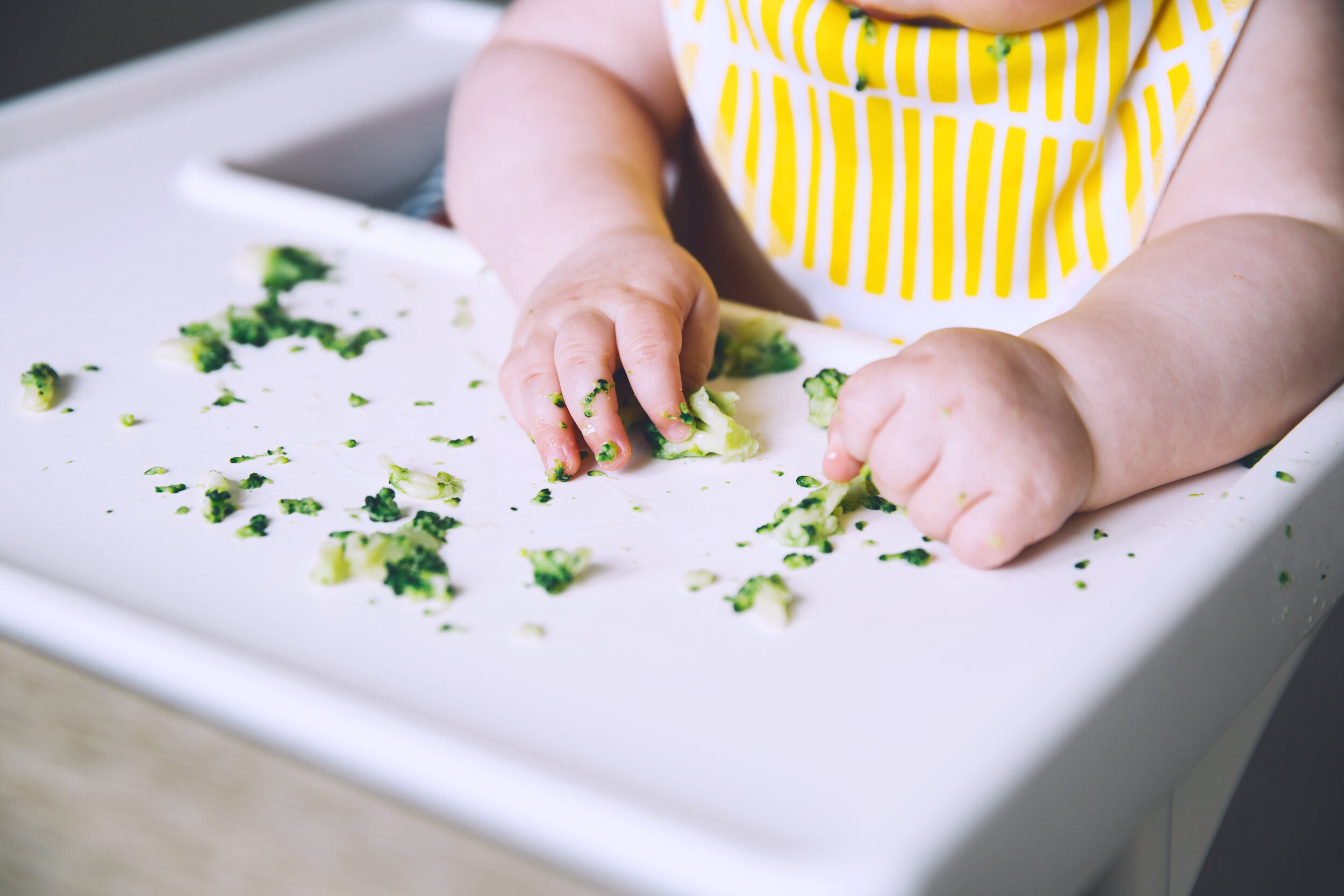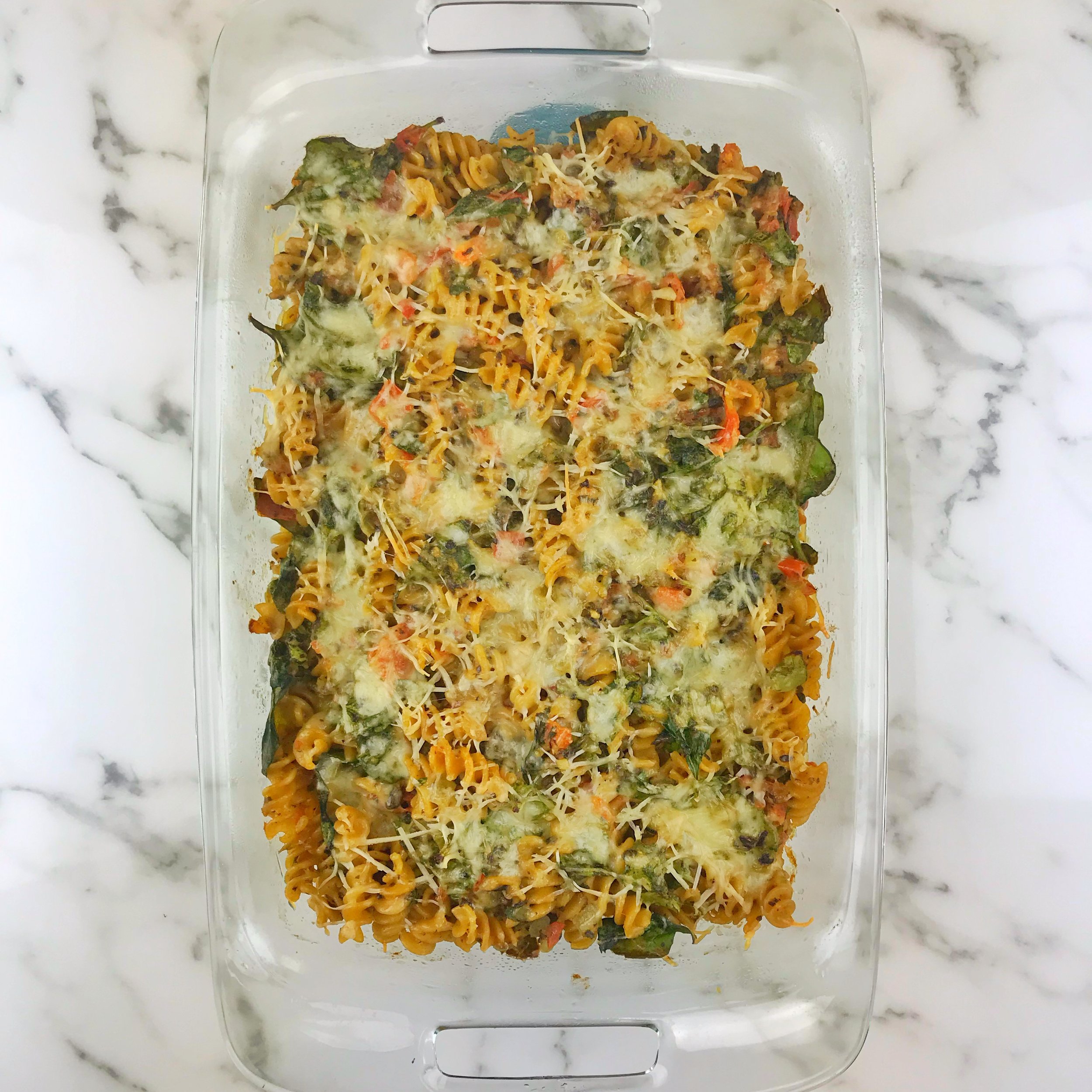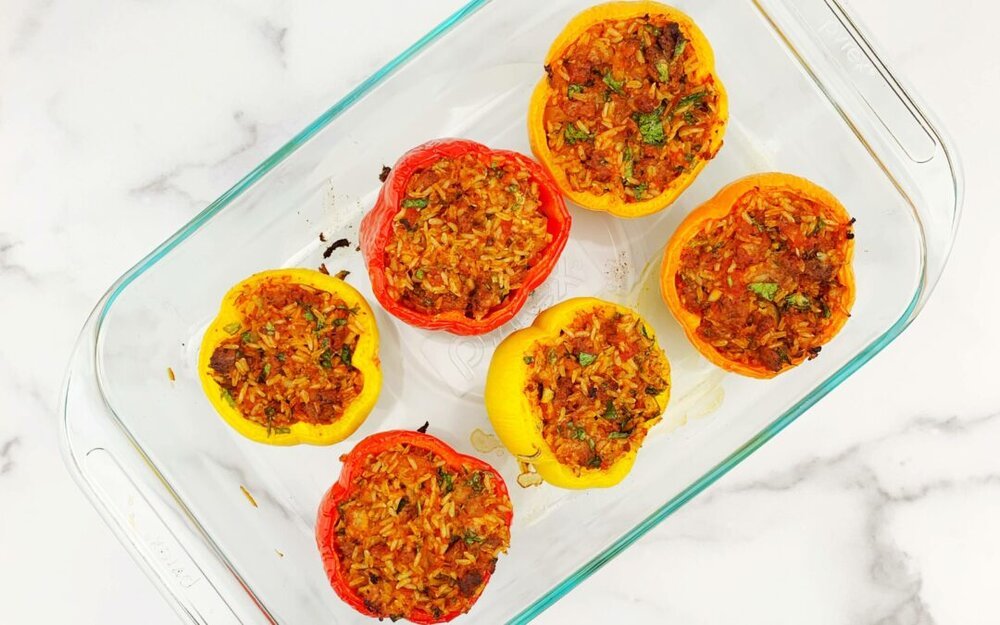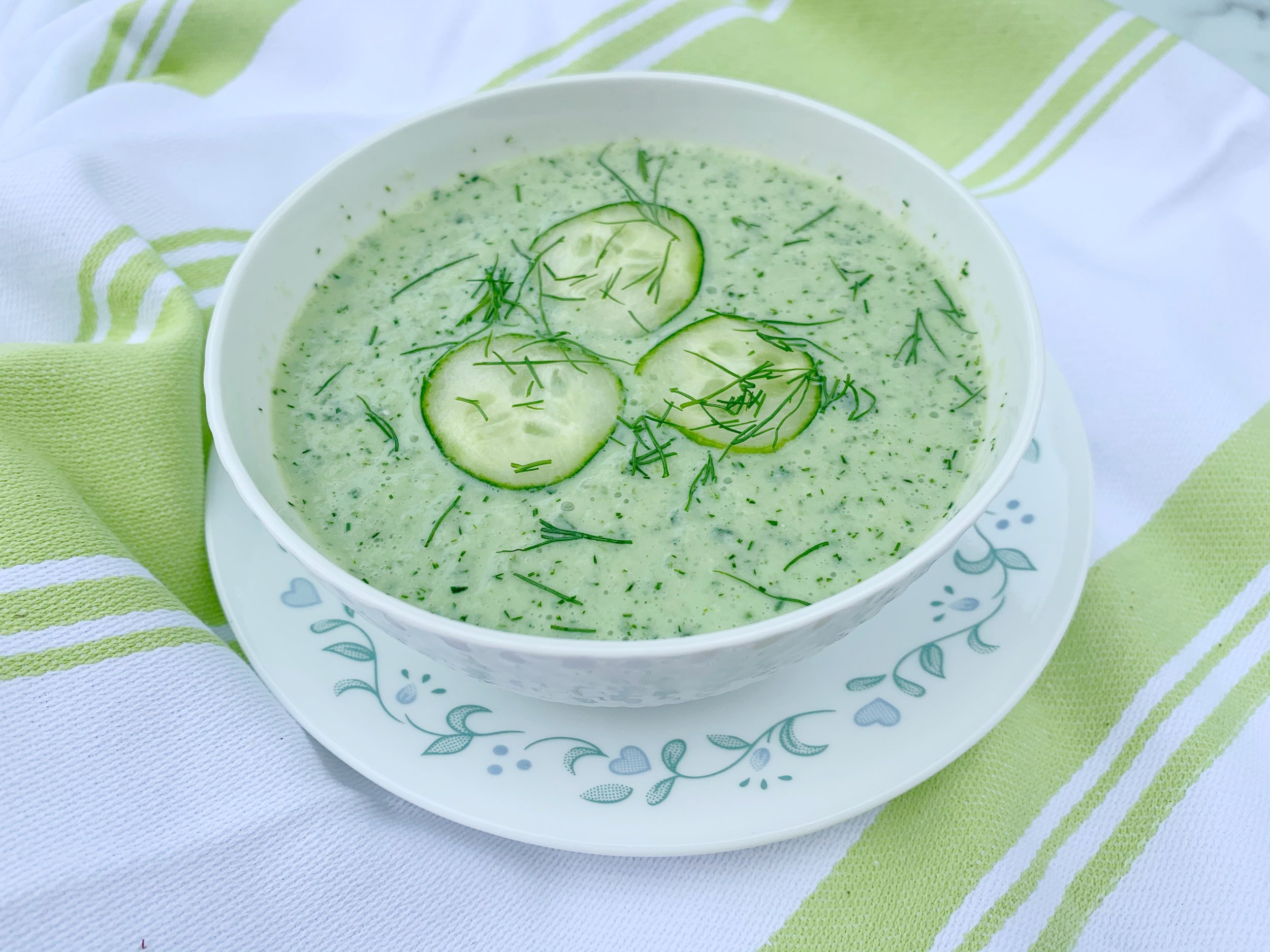Can Babies Have Salt?
Many parents who are just beginning to offer their babies solid foods receive conflicting and confusing advice from friends, family, and even healthcare providers about how much sodium their babies can tolerate, whether from salt or other sources.
Some say feed your baby what you’re eating regardless of salt; others say just don’t salt your baby’s food; others strike fear into the hearts of caregivers at the mention of any amount of sodium in a baby’s diet. Perhaps you’ve asked yourself, “Will salt hurt my baby? If so, how much is too much?”
As a pediatric registered dietitian specializing in infant feeding, my goal in writing this post is to provide you with sound guidance and an understanding of the current guidelines and research around sodium and infants so that you can filter out the noise and feed your baby with confidence.
Why do we need sodium?
Although sodium has a bad reputation, some sodium is actually necessary for healthy bodily functioning. Sodium is an important electrolyte and naturally occurring mineral in many foods. Most table salt is made from sodium chloride; thus, many people use the terms sodium and salt interchangeably. Sodium regulates fluid balance in our bodies and helps with nerve and muscle function.
Our bodies need a proper balance of sodium and fluids, which is partly why we do not offer water to babies under 6 months. If a baby drinks too much water, it can cause their kidneys to flush out sodium and other electrolytes. A very serious condition called hyponatremia can result when too little sodium is in the body.
How much salt do babies and children need?
It seems like a simple question with a simple answer. Ideally, there would be enough evidence to set an Estimated Average Requirement (EAR) for sodium, but there is actually very little available research on this topic, and only an Adequate Intake (AI) is available.
Using what is known about the sodium content of breast milk, the current AI was established by the National Academies of Science, Engineering and Medicine, based on babies’ estimated sodium intake from breast milk and complementary foods. It was last updated in 2019:
For babies 0 to 6 months: 110 mg per day
For babies 7 to 12 months: 370 mg per day (complementary foods are taken into account at this age)
The problem with this AI is that we can’t really estimate how much sodium is in breast milk, because amounts vary significantly between individuals, populations, and even feedings.
If you’re interested in reading more about this, check out the work of Lily Nichols, a registered dietitian known for her thorough, evidence-based resources, which include an excellent blog post describing the holes in our current understanding of the sodium guidelines for infants. She explains that the current AI doesn’t make sense since multiple studies show a wide range in the sodium levels found in breast milk and that it would make more sense to have an adequate intake range instead of a single number.
Is salt bad for babies?
Concerns have been floating around for decades about the risks of too much salt in the diet, particularly for babies, but is there enough substantial evidence to support these concerns? Let’s review the most common fears about giving babies too much salt.
Does giving salty foods to babies lead to high blood pressure?
Some evidence suggests that babies exposed to saltier foods at 6 months of age are more likely to prefer salty foods as they grow older. However, the research citing this evidence also gave the babies in the study starchy table foods before 6 months, which may have contributed to their affinity for salty foods later on.
We are still learning about the effects of salt and sugar on chronic conditions such as high blood pressure and cardiovascular disease. A high sodium diet has been linked to high blood pressure in adults; however, the key word here is linked (or associated). Studies have not consistently shown that eating salt will always lead to higher blood pressure.
Over time, there is concern that this potential preference for salty foods in infants may cause a baby to have high blood pressure in infancy or later on. In babies older than 6 months of age, there is currently no evidence to show that eating salty foods will increase the risk of high blood pressure in infants or their risk for high blood pressure as adults.
Is too much sodium bad for a baby’s kidneys?
Many sources say that infant kidneys can’t really handle much sodium. I even included this phrase in my best-selling baby-led weaning book, but now have a deeper understanding of the lack of evidence supporting this claim.
By 6 months of age, an infant's kidneys are mature enough to excrete sodium efficiently, which is also the age when it is recommended to start eating complementary foods. No single case study has shown excessive sodium consumption from foods leading to hypernatremia (or excess sodium in the body) due to the kidney’s lack of ability to flush the sodium from the body.
How much sodium is too much for babies?
Although there is not an established upper limit of sodium for babies or toddlers, there have unfortunately been case reports of toxicity. These are rare, but it’s worth noting that too much sodium can be very harmful if given in excess from sources other than complementary foods.
One sadly fatal case consisted of an accidental dose of 5,000 mg of sodium given to a 7-month-old baby in a homemade oral rehydration solution. Consuming a large amount of sodium all at once can cause hypernatremia (excessive sodium in the blood), which can lead to lethargy, irritability, reduced urinary output, and seizures in infants.
Most cases of hypernatremia in infants actually occur due to dehydration, not excessive salt consumption. And although one case study is not enough information to determine exactly how much is too much, it is important not to overload a baby with salt. If you have concerns about your baby’s hydration status, especially if they have poor urine output, vomiting, or diarrhea, please contact your trusted healthcare provider immediately.
How to approach salt in a baby’s diet
All that being said, instead of avoiding salt while preparing foods for the entire family (baby included), it’s reasonable to add seasonings and salt as you usually would while cooking and do your best to use minimally processed, nutrient-dense ingredients.
Bitter foods (like some vegetables) tend to taste better with a little bit of salt. I don’t know about you, but I’d much rather see babies happily accept and benefit from the nutrients in a lightly salted and buttered piece of broccoli than reject plain steamed broccoli because it doesn’t appeal to them.
In any case, we know that most of our sodium intake comes from processed convenience foods like crackers, bread, cold-cut meats, and canned foods. If the goal is limiting sodium in the diet, limiting processed and restaurant-prepared foods high in salt will have a far greater impact than avoiding salt while making a home-cooked meal.
One easy way to include more fruits and vegetables if you are trying to save time is to use frozen produce, which is convenient, affordable, and long-lasting. If your family eats a diet higher in processed foods, check salt content, look for foods labeled as “low-sodium” or “no added salt,” and choose brands that ideally contain ~100 mg or less of sodium per serving.
Remember that given the lack of available research, infant sodium recommendations are meant more as loose guidelines rather than a set of hard and fast rules. While we don’t have exact guidelines for an amount of salt that is safe for babies, they likely do not need to consume as much as adults.
If you are looking for well-balanced meals for the whole family, please check out these recipes for baby-friendly breakfasts, as well as delicious dinner recipes like fusilli, cheese and vegetable casserole, stuffed bell peppers, and refreshing cucumber yogurt soup.
If you are looking for more specific nutrition guidance for your babies, kids, or yourself, I would love to schedule a virtual consult! You can also find over 30 recipes, weekly shopping lists, tons of balanced baby meals, a complete plan for top allergen introduction, and plenty of guidance on how to safely serve each food in my Safe & Simple 12-Week Meal Plan.
And if you’re getting ready to start your baby on solids, or if your baby has recently begun their feeding journey and you need guidance on food sizing, balanced baby meals, introducing the top allergenic foods, and making sure baby is getting the essential nutrients required for growth and development during infancy, check out my online course for parents, based on my best-selling book which will walk you through the whole process of starting solids using a baby-led approach.



